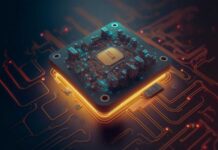The Internet of things (IoT) is an ecosystem of connected physical devices/objects that are accessible through the internet. IoT is a system of interrelated devices, digital products, objects, people or animals that are provided with unique identifiers and the ability to transfer data over a network without requiring any human interaction. The idea of this article is to provide an overview about IoT building blocks and call out how Electronics HW and Embedded Software play an integral role in IoT.
Skill requirements in IoT:
A career in IoT is quite promising for those who have innovative thinking and creative abilities and are looking for an exciting work environment, professional development, and higher compensation that IT professionals. Though, is a perfect domain for scholars interested in contributing to technological advancement, however, it must be warned that it’s not easy to become a ‘deep’ IoT technologist as learning one platform or skillset isn’t enough.
- One need’s have the natural curiosity about the world and the problems where technology can provide a solution.
- The team working on IoT projects comprises a mix of engineers, website developers, programmers, UI/UX designers, etc.
- Therefore, IoT developers need to develop soft skills, such as good communication and interpersonal skills for closely working with all of them to help translate connectivity and other data-related goals.
- The ability to learn and apply the concepts by building multidisciplinary skill sets is the key to a successful career in IoT.
- IoT Career Opportunities
- Data Analytics: In simple terms, it is one of the Internet of Things jobs that is aimed at making sense of whatever data you collect using your IoT devices which is otherwise just a heap of data. This role is essential in a firm as in this job; you should be very strong in statistical understanding, able to find correlations, tabulate your findings from data in a graphical and presentable manner and have knowledge of working with statistics-based languages like R, SAS as well as some Python libraries like NumPy, Pandas, etc. An individual having all these skills is considered an asset to a company.
- Network and the Networking Structure: In the world of IoT, the hardware setup to deploy solutions can get complex, and the huge chunks of sensors and wires rigged up to different peripherals and ports contribute majorly to this complexity. In case even a single wire/connection fails due to some reason, the machine may not work as desired or not work at all. Hence, this calls for the need for a Network Architect. Professionals specializing in Network Setups and Networking would be required to ensure that all the connections work well. In short, employees in this field must be able to design an efficient network architecture that is foolproof of several wiring problems and follows all the communication protocols effectively.
- Security: One of the core problems of the Internet is safeguarding the users from hackers and malicious programs. Therefore one of the Internet of Things Jobs is dedicated to securing your devices. If this part of your IoT solution is compromised and a hacker gains control of one device, then eventually, the network does not stand invulnerable anymore, and all your data is put at risk. The professionals in this field are responsible for doing regular testing and challenging the system’s integrity with different techniques, find and fix security flaws wherever the system fails and put the whole process of using an IoT Device under a smooth and secured connection bubble. To work in this field, you must know Vulnerability Evaluation, Public Key Encryption, and know techniques to secure wireless networks. Cyber Security understanding is a good way to start towards this.
- Hardware and Devices: What makes a device ‘Smart’? Is it just by connecting any device to a network? Well, it is more than that. Organizations need to modify their devices to be able to fit the networks and work accordingly. Though it’s mostly an integration of several sensors and transmitters, it is one of the core jobs in the IoT industry. To deem fit for this IoT job, professionals must have the know-how of working with different sensor modules, transmitters, protocols, and integrators like Zigbee, BLE, etc.; and keep themselves updated with working towards any new device/technology that enters the.
- Artificial Intelligence: AI and Machine Learning Skills become essential when the task involves big data analysis and deriving findings. To create smart applications over huge volumes of data, technologies mentioned in AI and ML help in the long run. Job seekers need to understand algorithms designed in AI, ML, and different have a strong understanding of plotting libraries to represent data efficiently.
Components of IoT:
Now that you have a brief idea about how IoT works at a high level, let us start building architectural understanding. Here is a diagram to give you a high-level view.
IoT architecture is a structure of numerous elements. In simple words, IoT architecture has five major components. They are described as follows:
- IoT device: IoT devices can be wireless sensors, software, actuators and computer devices. They are fixed to a specific object that runs through the internet.
- IoT Gateway: IoT gateway is a device or a software program that serves as a connection point between cloud and multiple IoT devices.
- Network: Network is the bridging element that connects an array of IoT gateways to the Cloud platform by traditional TCP/IP network.
- Cloud: Cloud is a platform which takes massive volumes of data generated. They receive them via IoT gateways which in turn has tons of devices behind them.
- Applications: The synthesized data for the end user to derive meaningful insights. The application typically provides a User Interface (UI) to the end user.
Need to train manpower in IoT Domain as per the Industry Requirement: –
- IoT Hardware Analyst – This QP primarily takes a complete hardware perspective. For Engineers coming from Electronics / Electrical background, this is an ideal QP if you want to have your career in the hardware aspect of IoT. The QP is designed as a pack of skills that includes Circuit design, Hardware realization in terms of PCB, Optimization, Verification and Validation, and System thinking aspects.
The NSQF (National Skill Qualification Framework) level for this job role is 5 and the minimum educational qualification required to enroll in this job role is Bachelor’s Degree in Engineering / Technology / Statistics / Mathematics / Computer Science. - Embedded Full-Stack IoT Analyst – This QP primarily takes the software perspective. With a primary focus on Embedded Software design, this QP focuses on skill-building in areas like Embedded programming, Operating Systems, UI development, Debugging, Testing and release of quality software. This QP also gives very good focus to inculcate engineering best practices. For engineers who are willing to have a career as Design Engineers, this QP would serve as an ideal skill pack.
This job role is covered under the NSQF Level 5 and the minimum educational qualification required is a Bachelor’s Degree in Engineering / Technology / Statistics / Mathematics / Computer Science.
Salary trends in IoT
The IoT India Salary Study maintains that the salary of IoT professionals in India is nearly 76% higher than that of IT professionals. While IoT professionals get a median salary of ₹15.2 LPA, the median salary of IT professionals is around ₹8.65 LPA. For Entry Level- salaries start from: ₹3.5 – ₹6 LPA while the mid-level professionals can make around ₹10-25 LPA.
Conclusion:-
The future of IoT is virtually unlimited due to advances in technology and consumers desire to integrate devices such as smartphones with household machines. A Networking and connectivity protocol has made it possible to connect people and machines on all platforms. Also, there is so much data travelling from device to device. Security is another key concern will need to be addressed to keep up with demands. From an individual’s perspective IoT offers excellent career opportunities which need to be harnessed. However, it requires you to have the necessary skill which is going to be the key differentiator.















